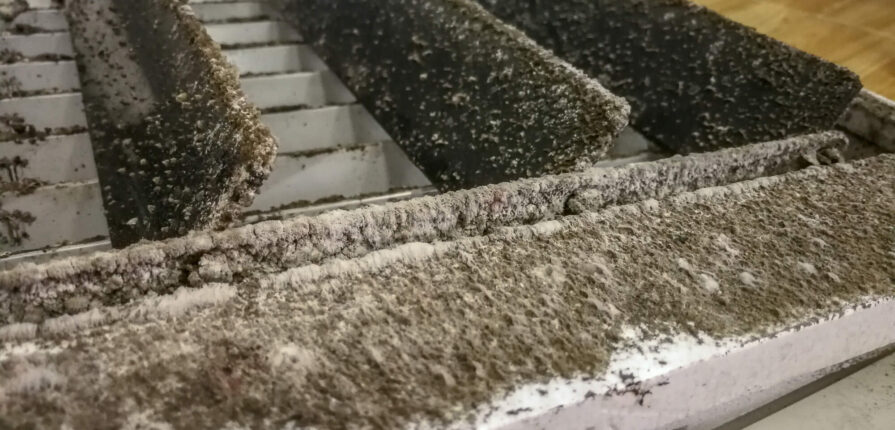Presence of Mold in Air Conditioners
Excessive moisture in your home produces a number of problems, such as mold and mildew growth inside your HVAC system and ductwork. Prevent microorganisms from spreading throughout your home when you know how to prevent mold in air conditioner systems.
What are Signs of Mold in Air Conditioners?
There are a few signs to watch for if you suspect mold in your air conditioner:
- Musty smell. It’s spores give off a distinct musty smell. If you have a central AC unit, you might notice a musty smell throughout the house with no discernable source or visible signs. If you have one or more window air conditioners, you might notice this smell in the room where the unit is located. A musty smell coming from an air vent when the AC is running is a clear sign in your air conditioner.
- Health symptoms when AC goes on. Mold can cause a variety of negative reactions, including allergic reactions and various respiratory problems. If you or someone in your family starts showing these symptoms only when the air conditioner is running, it may be the culprit.
- Visible signs. Of course, depending on the location of your AC unit, you may be able to give it a visual inspection, along with the air vents if you have central air conditioning. Look for the familiar patchy spots of it, sometimes fuzzy and often black or green-black. But keep in mind that it spores are microscopic and the source of them may be hidden from view. So even if you can’t see any mold, it may still be lurking out of sight.
- Professional inspection. If you suspect mold in your air conditioner , the best way to be certain is to bring in a professional mold inspector. They will be able to determine if there is mold in your AC unit, in the ventilation system, and other parts of your home.

How to Prevent Mold in Air Conditioner?
Fortunately, there are a few steps you can take to prevent mold from developing in your air conditioner:
-
- Reduce moisture. The easiest way to avoid moisture build-up in an AC unit is back when you purchase it. Look for an AC unit with humidity control. Many modern units vent water vapour with air. If you have a unit that is designed to collect water in a reservoir, empty it regularly.
- Avoid organic debris. In addition to water and air, mold needs organic matter to breed. Clean or replace your air conditioner’s filter regularly, and vacuum the interior to clear out any dust and debris. Don’t give mold any food to live on!
- Keep unit running while on vacation. It tends to build up when the air conditioner is not running and the air is still. Keep your unit running, even when on vacation. To reduce energy consumption, you can set the target temperature higher so it runs less often, but don’t shut it off altogether.
